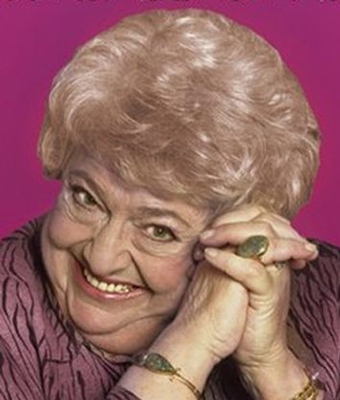 In common with many people born around the 1930s I was reared to be reticent. One did not display oneself. The worst public beating I ever suffered was for turning cartwheels in the park, thus flashing my knickers for all to see. I was eight at the time. Similarly, people would be mortified to see their names in the newspapers (unless they were very common people). To be Talked About by the neighbours was the ultimate in degradation. The phrase "what would the neighbours say?" closed any discussion about what I might wear, places I might go, even ideas I might hold that failed to march with the rest of the world as my elders perceived it.
In common with many people born around the 1930s I was reared to be reticent. One did not display oneself. The worst public beating I ever suffered was for turning cartwheels in the park, thus flashing my knickers for all to see. I was eight at the time. Similarly, people would be mortified to see their names in the newspapers (unless they were very common people). To be Talked About by the neighbours was the ultimate in degradation. The phrase "what would the neighbours say?" closed any discussion about what I might wear, places I might go, even ideas I might hold that failed to march with the rest of the world as my elders perceived it.
That being so, how is it that I have during this past year occupied most of my time with self-display of the most excessive sort?
I have for the past 40 years been involved in dealing with the self-display of others: people willing to see their misery published in a newspaper column. It was my job to offer relief. I would never allow any editor access to the names of these people, for protecting readers' confidentiality was a moral absolute for me even if it wasn't for them. Many were irate wives who dearly wanted me to publish the names of errant husbands as well as the full list of their peccadilloes. But I was as prim as I had been reared to be. If they didn't value their own anonymity, then by crikey would value it for them.
Yet here I am now, throwing discretion to the winds and, in cahoots with my publisher, selling a detailed account of my own life with all (well, most) of my shameful secrets clearly laid out for the lipsmacking multitude I am hoping will buy it. I am rushing about the country from bookshop signings to festival lectures, TV interviews and radio chats and, as though my now thoroughly exposed knickers had caught their elastic on my London doorknob, smiling and bobbing at all and sundry and flogging my wares like a costermonger.
Have I succumbed to the lure of loot? Did Virago make me the offer that could not be refused? Am I (as a friend said, not altogether joking) trying to pre-empt some blackmailer who has caught up with me from my unsavoury past?
My motive is none of these. The money I am making is agreeable, yes, but my need is not so great nor the amount offered so massive that I would sell myself unwillingly to get it. The only potential blackmailers I knew died long ago. So what is left to drive me on?
Some years ago the psychiatrist Anthony Clare invited me to sit in his chair in Radio 4. I knew of course that it would be a form of self-exposure, but I wasn't worried. I had once made a TV pilot of the radio programme with him and that had been an enjoyable experience, discussing simple issues like sex and politics with no mention of my childhood. So I arrived at Broadcasting House for the interview in a relaxed mood. And the dear man went straight for my jugular.
He was determined to find out all he could about my childhood and I was just as determined he would not. That was partly due to the fact that I still felt then that there are things one simply does not talk about, and partly due to bloody mindedness. I would not be bullied.
He reduced me to a jelly, floods of tears and much embarrassment. But when the carefully edited programme was transmitted, shorn of most of my sniffs and sobs, something happened that I did not expect.
I had been afraid that the programme would lose me credibility with my readers. I would be a leaky vessel. No sick patient in a hospital bed wants to hear his nurse tell him she once had a much worse time than he is suffering now. He just wants her to be strong and reliable. I believed that the programme had stolen that strength and reliability from me.
Anthony Clare assured me the opposite would be the case. That awareness of distress resolved and pains dealt with gives the sick and unhappy the hope that the same may be possible for them. It strengthens them enormously.
I started to do some further reading and thinking and was embarrassed to realise how shortsighted I had been.
How do babies learn to speak, to behave sociably, to walk and run and all the rest of it? By observing other humans and imitating them. Adults learn new skills by watching the skilful. We are an observant species, living and learning by each other's actions. By showing my past complete with warts, I had made readers feel I was even more useful and they even more potentially capable. Their letters told me so.
Since then I have thrown all reticence to the wind. Roll up, roll up and hear my tale of breast cancer! You too can live with it in peace. Read my book which adds even more to that list of things I once thought unspeakable and discover how minor your own sins were!
I believe now that there is much that humanists can learn from the lesson I learned. We are, by and large, a reticent lot. We may work in the field of care of the homeless, or turn out to do all we can when disasters occur, but who knows that we do? We have no systems to enable us to work in a way that would advertise us.
When I used to go out with food for street dwellers I saw lots of vans labelled "St Aloysius Freedom from Hunger Campaign" or "Sister Mary's Mission" or whatever, never one that said "British Humanist Association". I worked from a Church organised van myself, faute de mieux, and found other humanists there also mucking in. If the job needs doing we'll do it – but it would be rather nice to feel that we could let the world know, while we work, that the religious don't have a monopoly of compassion.
Just think; all those Humanists out there who don't even know the British Humanist Association exists. A little more knicker flashing on our part and they might come and join us!

